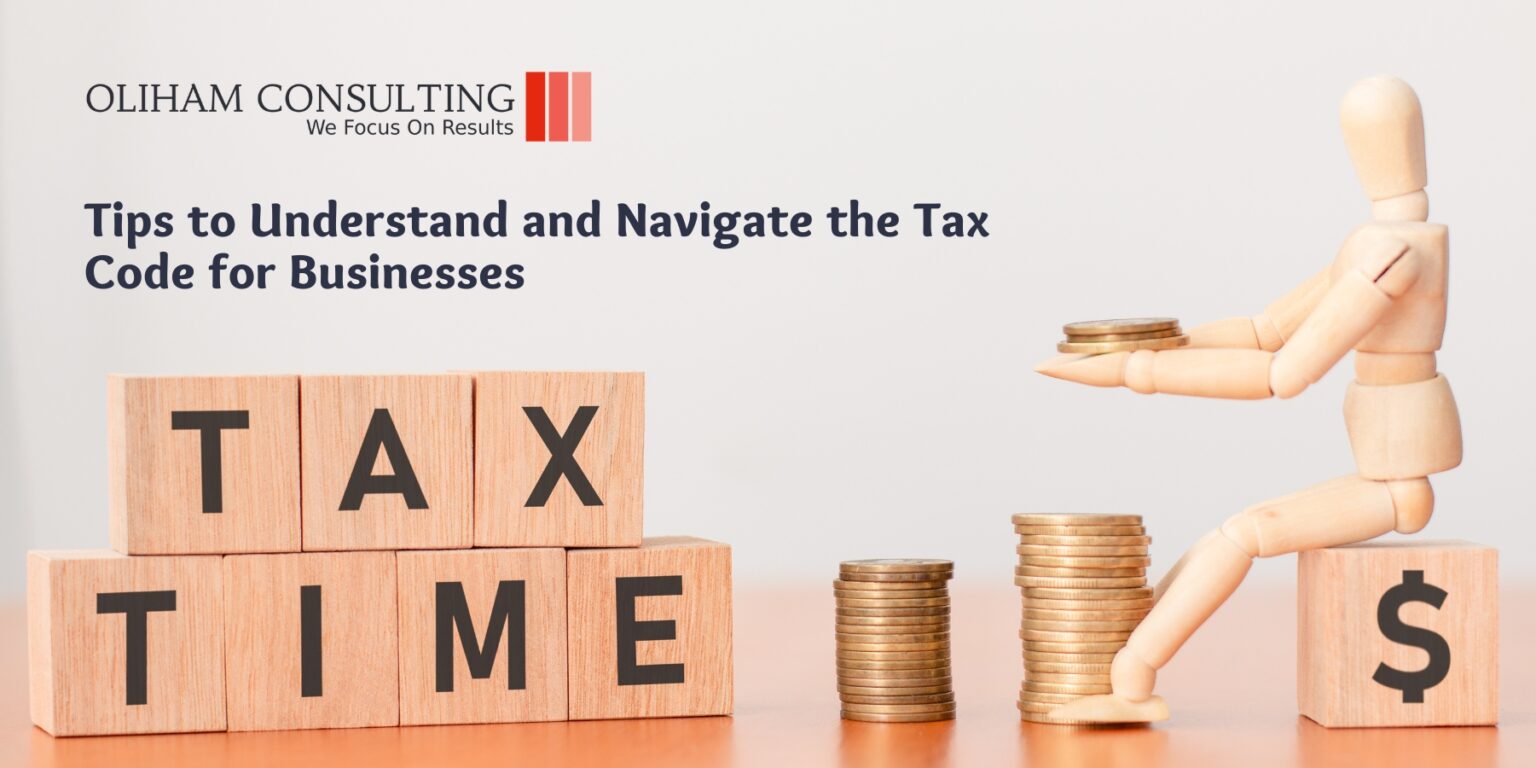Introduction: The Importance of Understanding the Tax Code for Businesses
Understanding the tax code is crucial for businesses of all sizes. Whether you’re a small startup or a large corporation, navigating the complex world of tax regulations is essential for maintaining financial stability and ensuring compliance with the law. In this section, we will explore the importance of understanding the tax code for businesses and provide valuable tips to help you navigate through the intricacies of small business taxes.
Exploring Different Business Structures and Their Tax Implications
Understanding the tax implications of different business structures is crucial for entrepreneurs and business owners. Choosing the right structure can have a significant impact on your tax obligations and overall financial success.
One common business structure is the S-Corporation, which offers certain tax advantages. S-Corporations are pass-through entities, meaning that profits and losses flow through to shareholders’ personal tax returns.
On the other hand, C-Corporations are subject to double taxation, where both the corporation and its shareholders are taxed on corporate profits. However, C-Corporations may benefit from lower tax rates and more flexibility in terms of deducting expenses. Partnerships also operate as pass-through entities, similar to S-Corporations. Partners report their share of profits or losses on their individual tax returns. Sole proprietorships are the simplest form of business structures, where there is no legal distinction between the owner and the business entity.
It is essential to consult with a qualified accountant or tax professional to fully understand how each business structure will impact your specific situation. They can provide guidance tailored to your needs and help you make informed decisions about structuring your business for optimal tax efficiency.
Understanding Different Types of Business Taxes
Understanding the different types of business taxes is crucial for any entrepreneur or business owner. From income tax to self-employment tax and payroll taxes, each type serves a specific purpose and requires careful attention to ensure compliance with legal obligations.
Income tax for businesses is a key component of the overall tax structure. It is based on the net income earned by the business and is typically paid annually. This tax helps fund government programs and services, ensuring that businesses contribute their fair share towards public infrastructure and development.
Self-employment tax, on the other hand, applies to individuals who work for themselves or operate as independent contractors. This tax includes both the employer’s and employee’s portion of Social Security and Medicare taxes. It is important for self-employed individuals to accurately calculate and pay their self-employment taxes to avoid penalties or legal complications.
Payroll taxes are another critical aspect of business taxation. These include federal, state, and local taxes withheld from employees’ wages to fund programs such as Social Security, Medicare, unemployment insurance, and workers’ compensation. Employers are responsible for accurately calculating these taxes based on employee earnings and ensuring timely payments.
By understanding these different types of business taxes, entrepreneurs can effectively plan their finances, allocate resources appropriately, and ensure compliance with legal requirements. Seeking guidance from financial professionals or utilizing reliable accounting software can also simplify the process of managing these complex taxation responsibilities.
Tips to Mastering the Tax Code for Your Business
Mastering the tax code for your business can seem like a daunting task, but with the right strategies and resources, you can navigate through it successfully. One of the most crucial steps is to hire a professional tax advisor or accountant who specializes in business taxes. Their expertise will ensure that you are taking advantage of all available deductions and credits while remaining compliant with tax laws.
Staying organized with your documentation is another key aspect of mastering the tax code. Keep track of all receipts, invoices, and financial statements related to your business expenses and income. This will not only make it easier for your tax advisor to prepare accurate returns but also provide you with a clear picture of your financial health throughout the year.
To further enhance your understanding of the tax code, consider educating yourself through resources such as books, articles, and online courses specifically tailored to small business owners.
Leveraging technology can also be beneficial when it comes to mastering the tax code. Utilize bookkeeping software or apps that automate record-keeping processes and generate reports for easy reference during tax season.
By following these tips – hiring a professional tax advisor/accountant, staying organized with documentation, educating yourself through resources and courses, and leveraging technology for bookkeeping – you’ll be well on your way to mastering the complexities of the tax code for your business.
Common Mistakes to Avoid When Dealing with Taxes as a Business Owner
As a business owner, dealing with taxes can be a complex and daunting task. However, by avoiding common mistakes, you can ensure a smoother tax season and potentially save yourself from unnecessary penalties or audits.
One common mistake to avoid is failing to keep accurate records. It is crucial to maintain detailed records of all your business transactions, including income and expenses. By doing so, you can easily substantiate any claims made on your tax return and provide necessary documentation if audited.
Another mistake to steer clear of is neglecting estimated quarterly payments. As a business owner, you are typically required to make estimated tax payments throughout the year. Failing to do so can result in underpayment penalties or interest charges when it comes time to file your annual return.
Improper classification of workers is another pitfall that many business owners fall into. It is essential to correctly classify workers as either employees or independent contractors based on IRS guidelines.
Lastly, ignoring deductions and credits can be a costly mistake for business owners. There are various deductions and credits available that can significantly reduce your taxable income or even result in a refund.
By avoiding these common mistakes when dealing with taxes as a business owner, you can ensure compliance with the law, minimize financial risks, and potentially save money in the process. Remember that seeking professional advice from an accountant or tax specialist is always beneficial for navigating the complexities of taxation effectively.
The Benefits of Complying with Tax Regulations and Staying Updated
Complying with tax regulations and staying updated with the latest changes can bring numerous benefits to individuals and businesses alike. By doing so, one can avoid penalties and fines, maintain good financial health, and even maximize tax savings opportunities.
One of the key advantages of complying with tax regulations is avoiding penalties and fines. Non-compliance can result in hefty fines that can significantly impact an individual’s or business’s financial standing.
Furthermore, maintaining good financial health is crucial for long-term success. Complying with tax regulations plays a vital role in this aspect as it helps individuals and businesses keep their finances in order.
In addition to avoiding penalties and maintaining financial health, staying updated on tax regulations presents opportunities for maximizing tax savings. Tax laws often undergo changes that introduce new deductions or credits that individuals or businesses can take advantage of.
In conclusion, complying with tax regulations and staying updated offers several compelling benefits. It helps individuals and businesses avoid penalties and fines while maintaining good financial health.
In Conclusion: Empowering Your Business Through Understanding the Tax Code
In conclusion, understanding the tax code is crucial for empowering your business and ensuring its long-term success. By gaining a comprehensive knowledge of the tax regulations and requirements that apply to your industry and specific circumstances, you can effectively navigate the complexities of taxation and leverage it to your advantage.
We always recommend our clients to consult a tax professional while filing there taxes. From our years of experience we recommend Massey & Co as a trusted professional for tax consultation and tax filing. There senior most director Mr. Gary Massey, CPA has more than 30 years of experience and handled many of tax files and litigations with IRS.





